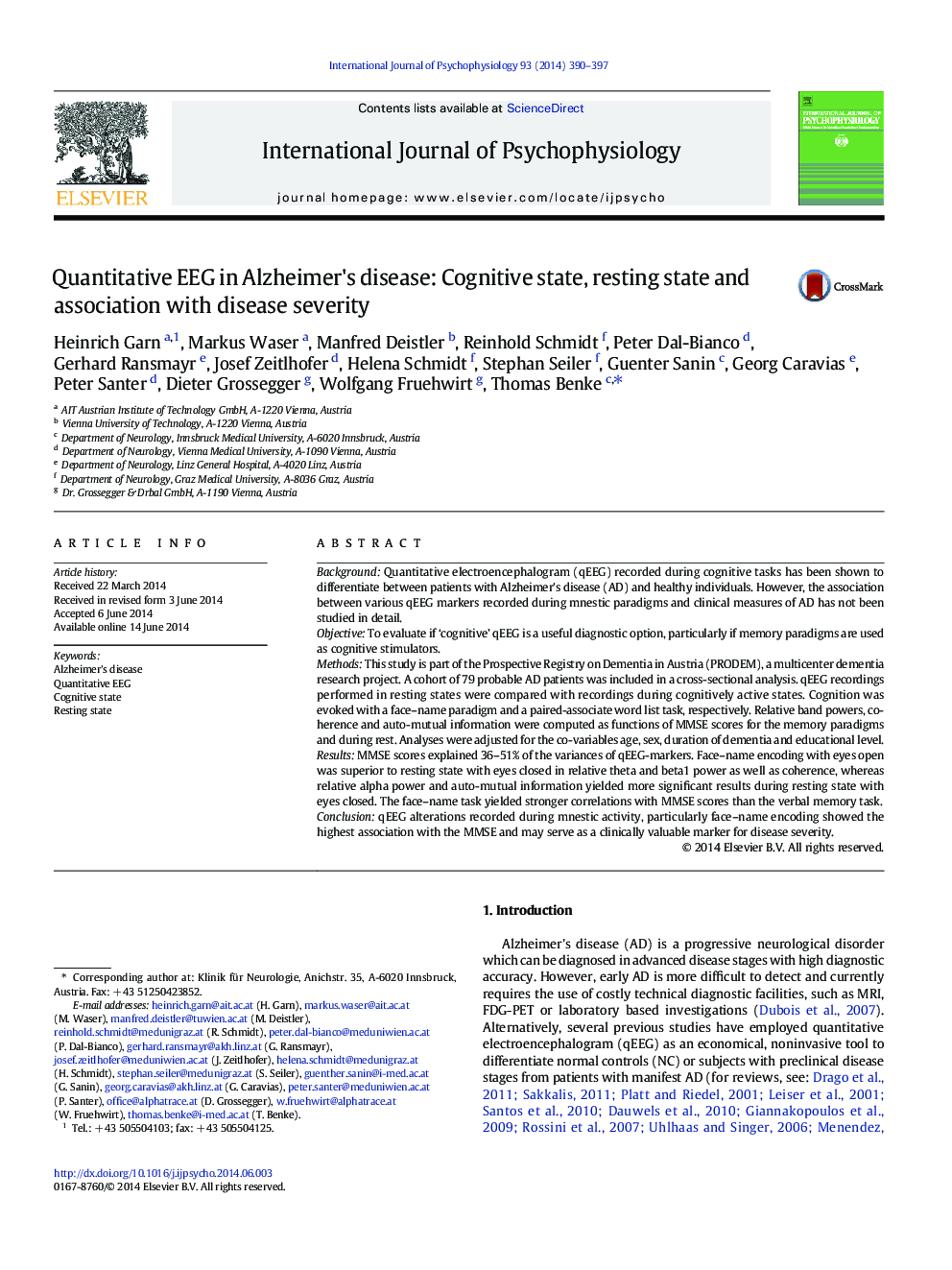| کد مقاله | کد نشریه | سال انتشار | مقاله انگلیسی | نسخه تمام متن |
|---|---|---|---|---|
| 930259 | 1474415 | 2014 | 8 صفحه PDF | دانلود رایگان |

• MMSE scores explained 36–51% of the variances of qEEG-markers.
• Face–name encoding was superior to resting state in relative theta and beta1 power.
• Relative alpha power and auto-mutual information were more significant in resting state.
• Face–name task yielded stronger correlations with MMSE than verbal memory task.
BackgroundQuantitative electroencephalogram (qEEG) recorded during cognitive tasks has been shown to differentiate between patients with Alzheimer's disease (AD) and healthy individuals. However, the association between various qEEG markers recorded during mnestic paradigms and clinical measures of AD has not been studied in detail.ObjectiveTo evaluate if ‘cognitive’ qEEG is a useful diagnostic option, particularly if memory paradigms are used as cognitive stimulators.MethodsThis study is part of the Prospective Registry on Dementia in Austria (PRODEM), a multicenter dementia research project. A cohort of 79 probable AD patients was included in a cross-sectional analysis. qEEG recordings performed in resting states were compared with recordings during cognitively active states. Cognition was evoked with a face–name paradigm and a paired-associate word list task, respectively. Relative band powers, coherence and auto-mutual information were computed as functions of MMSE scores for the memory paradigms and during rest. Analyses were adjusted for the co-variables age, sex, duration of dementia and educational level.ResultsMMSE scores explained 36–51% of the variances of qEEG-markers. Face–name encoding with eyes open was superior to resting state with eyes closed in relative theta and beta1 power as well as coherence, whereas relative alpha power and auto-mutual information yielded more significant results during resting state with eyes closed. The face–name task yielded stronger correlations with MMSE scores than the verbal memory task.ConclusionqEEG alterations recorded during mnestic activity, particularly face–name encoding showed the highest association with the MMSE and may serve as a clinically valuable marker for disease severity.
Journal: International Journal of Psychophysiology - Volume 93, Issue 3, September 2014, Pages 390–397